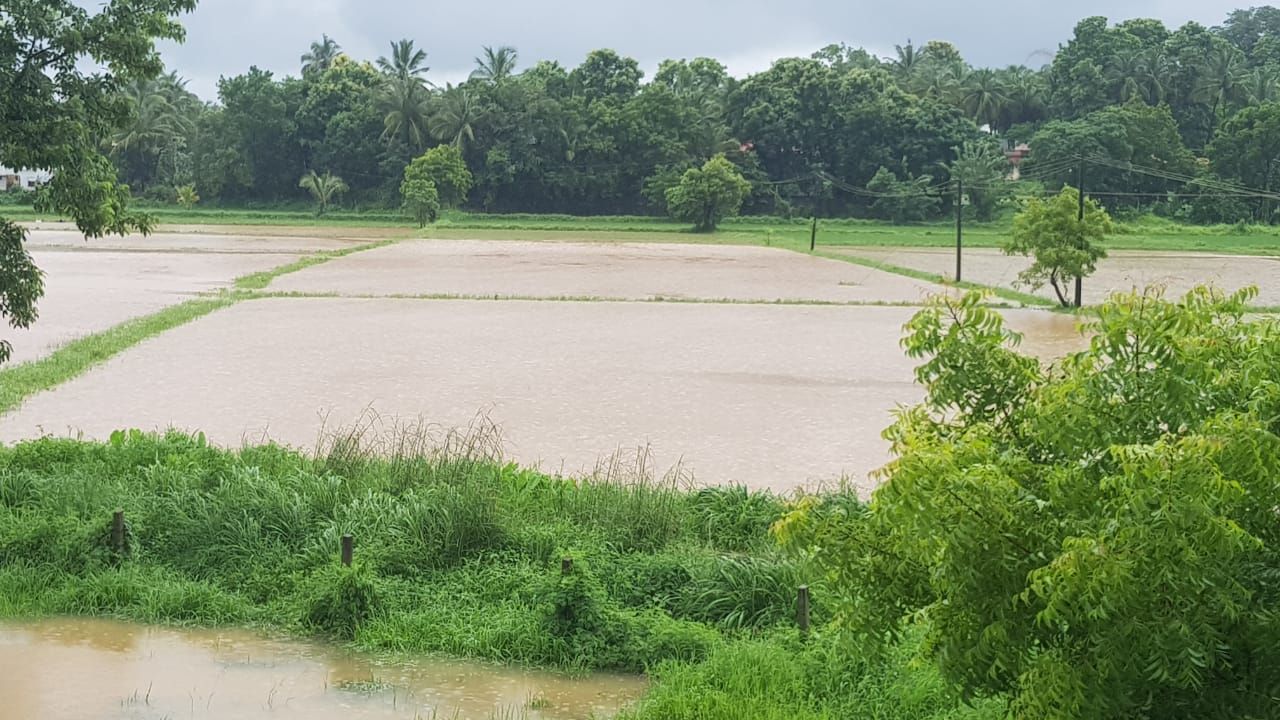
Kerala government's move to grant license to a Madhya Pradesh firm to set up a brewery and distillation unit in Palakkad amid charges of water shortage have pitted the BJP and Congress against the ruling Left. File photo
Rice Bowl in tatters: Suicide lays bare Kuttanad's farming woes

Rajeev Sarasan, a 49-year-old farmer at upper Kuttanad in Kerala’s Pathanamthitta district, took his life on April 11 by hanging from a tree adjacent to his paddy field. Hit by crop loss following unprecedented rains and floods, Rajeev was caught in a debt trap. The situation in Kuttanad, called the Rice Bowl of Kerala, has been terrible since the 2018 floods. The next three years — 2019, 2020 and 2021 — also saw heavy rains and floods, resulting in huge crop losses.
Rajeev was a small-time farmer who owned just 75 cents of land. That apart, he cultivated paddy on 8 acres in association with other farmers. Most Kuttanad farmers do not have large land holdings; they engage in group farming and contract farming.
Accumulating debt
Rajeev had a debt of Rs 8 lakh accumulated over a few years. “Farming was his only means of livelihood. Not only Rajeev, but all the small farmers in Kuttanad have been hit by crop damage since 2018. People borrow money, expecting to return it after harvest. Rajeev, too, did the same. But he never got the expected produce as there was crop loss every year due to heavy rains and floods,” says Roby, a CPI worker and friend of Rajeev.
“Recently, Rajeev took a loan of around Rs 1 lakh from a micro-financing group of which he was a member. He had to repay Rs 14,000 every week as per the loan terms. He could not repay for the last three weeks. He took the extreme step realising that he would not be able to repay the amount this week too,” says Robby.
On March 7, 10 farmers jointly filed a writ petition in the Kerala High Court seeking adequate compensation for crop loss. Rajeev was one among them. According to the petition, all the ten farmers were engaged in group farming and were eligible to get compensation of Rs 5,78,000 for the crop loss in the flood and storm in April 2021. The amount was arrived at by the agriculture department after a field examination. However, the government released only Rs 95,900, with Rajeev getting just Rs 4,200 as his share of compensation.
“The agrarian crisis in Kuttanadu is nothing but the result of policy failure,” says Gopakumar, a researcher and a native of Kuttanad. “Hundreds of studies about Kuttanad have been done, multiple packages announced by governments from time to time, but the remedial actions did not take off as expected,” says Gopakumar, who is writing a book about the area.
Unique ecosystem
Five rivers, originating from the Western Ghats, cross Kuttanad to the Arabian Sea. The flooding of these rivers due to untimely rains often causes crop damage. The practice of below sea level farming makes the ecosystem of Kuttanad unique in India. The Kuttanad Wetland Ecosystem and below sea-level cultivation are recognised by the Food and Agriculture Organisation (FAO) as a Globally Important Agricultural Heritage System (GIAHS). It is a wetland site designated to be of international importance under the Ramsar Convention.
“As a low-lying land, the inflow of saline water from the sea is another perennial problem that the farmers face in Kuttanad. These issues — the flooding and salinity — remain unresolved for decades,” says Gopakumar.
One of the still pending policies is the crop calendar. In 2007, the MS Swaminathan Research Foundation suggested preparing and implementing a crop calendar in view of factors that affect cultivation. As per this calendar, one season of (locally called Puncha) paddy cultivation has to be completed from November to March. A report released by the Planning Board of Kerala in 2019 observed that the department of agriculture had made no progress in the implementation of the calendar.
Urgent measures needed
“There is an urgent need to expand and deepen the canals in Kuttanad,” says Robby adding, “Since the great flood of 2018, tiny water bodies in Kuttanadu have become shallow and narrow due to flood deposit.” The Thottappilly spillway, built in 1954 to effectively curtail the floods in Kuttanad, has proved to be a failure. The spillway was designed to push out extra water from Pamba, Achankovil and Manimala rivers into the Arabian Sea. However, it was found that it was not discharging even half the required quantity. According to the Planning Board of Kerala, the spillway failed in achieving the desired result due to the faulty design that led to the formation of sand bars.
The people of Kuttanad warn that the suicide of Rajeev is only the tip of an iceberg. “Farmers have fallen neck-deep in debt. Many have received eviction notices from banks. As the government has stopped all such actions for the time being due to the pandemic, they manage to sleep in their houses,” says Verghese Babu, a farmer at Thiruvalla.
————— SUICIDE PREVENTION HELPLINE —————
TN helpline for suicide prevention – 104
Sneha Suicide Prevention Centre – 044-24640050
Aasara helpline for suicide prevention, emotional support & trauma help: +919820466726Rajeev Sarasan, a 49-year-old farmer at upper Kuttanad in Kerala’s Pathanamthitta district, took his life on April 11 by hanging from a tree adjacent to his paddy field. Hit by crop loss following unprecedented rains and floods, Rajeev was caught in a debt trap. Though Kuttanad, called the Rice Bowl of Kerala, generally gets more rain than neighbouring areas, the situation has been particularly bad since the 2018 floods. The next three years — 2019, 2020 and 2021 — also saw heavy rains and floods, resulting in huge crop losses.

